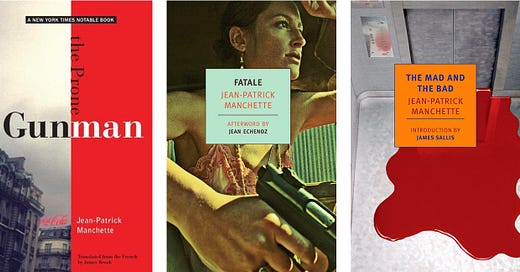Review: Barry Yourgrau on Jean-Patrick Manchette
Manchette used the crime thriller to skewer capitalist culture’s sedating distractions
Keep reading with a 7-day free trial
Subscribe to Book Post to keep reading this post and get 7 days of free access to the full post archives.


